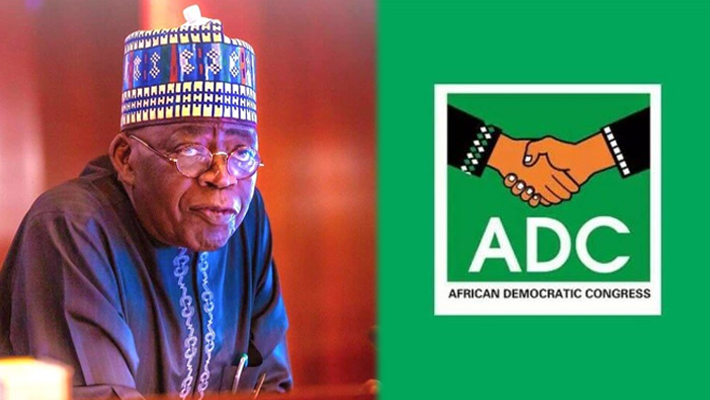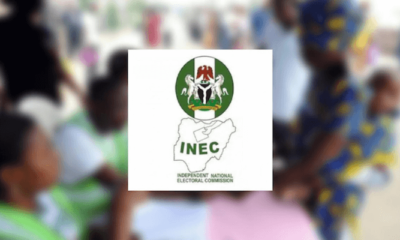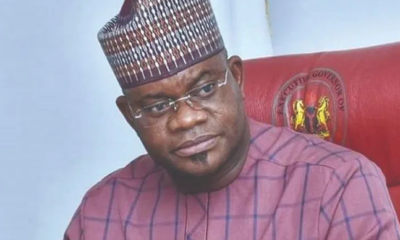Politics
‘Nigeria Now a Safe Haven for Drug Dealers’ — ADC Knocks Tinubu Over Presidential Pardon
The African Democratic Congress (ADC) has strongly condemned President Bola Ahmed Tinubu’s presidential pardon for convicted drug dealers and other criminals.

- The African Democratic Congress (ADC) has strongly condemned President Bola Ahmed Tinubu’s presidential pardon for convicted drug dealers and other criminals, describing it as a national disgrace that undermines Nigeria’s global fight against drug trafficking and damages the country’s reputation before the international community.
The African Democratic Congress (ADC) has strongly criticized President Bola Ahmed Tinubu over his recent pardon and clemency granted to individuals convicted of drug trafficking and other serious crimes, describing the move as a national embarrassment that portrays Nigeria as sympathetic to drug offenders before the international community.
In a statement issued on Sunday by its spokesperson, Bola Abdullahi, the opposition party said it “finds as pathetic and an act of immense national disgrace the recent presidential pardon and clemency granted to several convicted criminals by President Tinubu.”
ADC: Tinubu’s Action Undermines Nigeria’s Global Standing
The ADC warned that the decision could have far-reaching diplomatic implications.
“These pardons also send reverberations beyond Nigeria’s borders,” the party stated.

“They undercut our standing among global partners in the fight against drug trafficking and give the unfortunate impression that our country, under President Tinubu, has particular sympathy for drug dealers, making Nigeria appear as a risk-free haven for traffickers in narcotics.”
While acknowledging that presidential pardons can serve purposes of mercy and justice, the ADC questioned the basis of extending clemency to convicts serving life sentences who have barely served two years.
“It is hard to see what Nigeria stands to gain from this act of clemency,” the party added.
ADC Cites Drug Crisis Among Nigerian Youths
Highlighting the growing menace of drug abuse, the ADC noted that Nigeria continues to face a national drug epidemic, especially among young people.
“For the avoidance of doubt, Nigeria remains a major transit point for illicit drugs while battling a pandemic of drug use,” the statement read.
According to the National Drug Use Survey (NDUS) jointly conducted by the National Drug Law Enforcement Agency (NDLEA) and UNODC, Nigeria’s drug use prevalence is estimated at 14.4%, nearly three times the global average of 5.5%.
DON’T MISS: 2027 Poll: Jonathan to Undergo Eligibility, Popularity Tests
The ADC argued that granting clemency to convicted drug traffickers sends a dangerous signal that could undermine the sacrifices of law enforcement officers who risk their lives daily to protect society.

“Mockery of NDLEA’s Sacrifice” — ADC
The party described the move as a betrayal of the tireless efforts of the NDLEA and other security agencies that have “laboured under enormous risk and pressure to protect the public from the scourge of addiction, trafficking, and related crimes.”
“Granting clemency to individuals convicted under such laws strikes at the very foundation of Nigeria’s moral and legal stance against narcotics,” the statement read.
“It also makes a mockery of the gallant efforts of officers fighting the battle against illicit drugs.”
Tinubu’s List Includes Convicted Politicians and Drug Offenders
The ADC’s condemnation comes after the Tinubu administration released a full list of 175 individuals granted presidential pardon or clemency.
Among those listed are Farouk Lawan, a former House of Representatives member convicted in a fuel subsidy fraud case, and Nweke Francis Chibueze, who was serving a life sentence for cocaine trafficking.

In a statement released on Saturday, presidential spokesperson Bayo Onanuga said the president granted clemency based on “reports that the convicts had shown remorse and good conduct.”
However, critics argue that the timing and nature of the pardons undermine the government’s anti-corruption and anti-drug campaigns, raising questions about the administration’s commitment to rule of law and criminal justice reform.























You must be logged in to post a comment Login